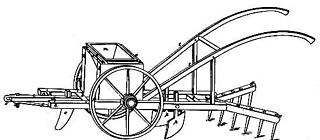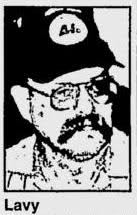 W
WThe role of African Americans in the agricultural history of the United States includes roles as the main work force when they were enslaved on cotton and tobacco plantations in the Antebellum South. After the Emancipation Proclamation in 1863-1865 most stayed in farming as very poor sharecroppers, who rarely owned land. They began the Great Migration to cities in the mid-20th century. About 40,000 are farmers today.
 W
WHenry Blair (1807–1860) was the second African American inventor to receive a US patent.
 W
WJason W. Brown is a former American football center and current farmer. He played college football at North Carolina and was drafted by the Baltimore Ravens in the fourth round of the 2005 NFL Draft.
 W
WJohn Brown was an American abolitionist leader. He rose to national prominence for his radical abolitionism and fighting in Bleeding Kansas, eventually being arrested and executed for a failed incitement of a slave rebellion at Harpers Ferry preceding the American Civil War. A man of strong religious convictions, Brown believed he was "an instrument of God", raised up to strike the death blow to American slavery, a "sacred obligation". Brown felt that violence was necessary to end American slavery, since peaceful efforts had failed. Brown said repeatedly that in working to free the enslaved he was following the Golden Rule, as well as the U.S. Declaration of Independence, which states that "all men are created equal".
 W
WBlanche Kelso Bruce was born into slavery in Prince Edward County, Virginia and went on to become a politician who represented Mississippi as a Republican in the United States Senate from 1875 to 1881. He was the first elected African-American senator to serve a full term.
 W
WHoward Warren Buffett is an American adjunct professor in public policy and international affairs, a political advisor, philanthropist and a grandson of Warren Buffett. He serves as an adjunct faculty member at Columbia University's School of International and Public Affairs and was previously the executive director of the Howard G. Buffett Foundation, a private philanthropic foundation that funds initiatives aimed at improving the standard of living and quality of life for the world’s most impoverished and marginalized populations. He previously led agriculture-based economic stabilization and redevelopment programs in Iraq and Afghanistan while at the United States Department of Defense, and as a policy advisor in the Executive Office of the President of the United States under President Barack Obama.
 W
WClyde Vernon Cessna was an American aircraft designer, aviator, and early aviation entrepreneur. He is best known as the principal founder of the Cessna Aircraft Corporation, which he started in 1927 in Wichita, Kansas.
 W
WConor Crickmore is an American farmer, educator, and tool designer. In 2009 he started Neversink Farm, which is known for its no till methods and high production on small acreage. He also develops small scale farming tools through his company, Neversink Tools. Conor is a pioneer of No Till small production farming and now teaches these methods to young farmers.
 W
WCharles "Barley" Garland was an American philanthropist.
 W
WTheodore Sedgwick Gold, commonly referred to by his initials as T. S. Gold, was an American farmer and schoolteacher who served as Secretary of the State of Connecticut Board of Agriculture (1866–1901) and trustee of the Connecticut Agricultural College from its founding in 1881 through 1901. He played a vital role in establishing the college and fostering agriculture in the state.
 W
WWilliam Helm was the largest individual sheep farmer and noteworthy among the early pioneer settlers of Fresno County, California. He was instrumental in the growth and prosperity of the San Joaquin Valley. Helm was vice-president of the Fresno Bank of Central California, and the president of the Fresno Canal and Irrigation Company.
 W
WHilliard P. Jenkins was an American farmer, philanthropist, and civic leader. His family homestead, located in Loxley, Alabama, was considered one of the state's richest farms, and he earned distinction for his agricultural techniques. Jenkins also maintained leadership positions in a number of statewide and county organizations, including the Alabama Democratic Conference.
 W
WThomas Lewis Lavy was an American farmer who attempted to cross the Canada–US border into Canada from Alaska with several firearms, ricin toxin, and $89,000 in cash in 1993. He was turned away at the border, and the toxin impounded. Lavy claimed at the time that the ricin was to poison the coyotes on his farm. More than two years later he was arrested by the FBI on terrorism charges relating to the border incident, and Lavy hanged himself in his jail cell four days later.
 W
WCudjoe Kazoola Lewis, born Oluale Kossola, and also known as Cudjo Lewis, was the third to last known survivor of the Atlantic slave trade between Africa and the United States. Together with 115 other African captives, he was brought to the United States on board the ship Clotilda in 1860. The captives were landed in backwaters of the Mobile River near Mobile, Alabama, and hidden from authorities. The ship was scuttled to evade discovery, and remained undiscovered until January, 2018.
 W
WShinpei Mykawa was a Japanese rice farmer who introduced the cultivation of rice in parts of southeast Texas. The community of Mykawa and Mykawa Road in Houston are named after him.
 W
WLeah Penniman (c.1980) is a farmer, educator, author, and food sovereignty activist. Penniman is Co-Founder, Co-Director and Program Manager of Soul Fire Farm, in Grafton, New York.
 W
WMurphy James Foster was the 31st Governor of the U.S. state of Louisiana, an office he held for two terms from 1892 to 1900. Foster supported the Louisiana Constitution of 1898, which effectively disfranchised the black majority, who were mostly Republicans. This led to Louisiana becoming a one-party Democratic state for several generations and excluding African Americans from the political system.
 W
WTheodore Brainard Terry was an American farmer, journalist and agricultural writer.
 W
WAlbert Charles Weed II is a Virginia winemaker, businessman, and Democrat. Weed was the Democratic nominee for election to Virginia's Fifth Congressional District seat, in both 2004 and 2006, running against Republican incumbent Virgil Goode. In 2004, Weed lost 64% to 36%; Goode once again defeated Weed in 2006, 59% to 40%.